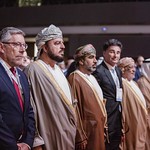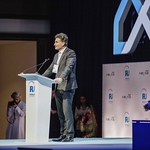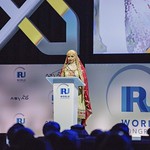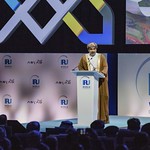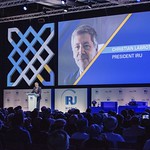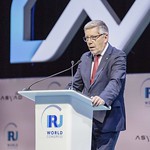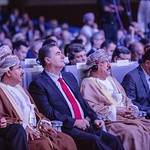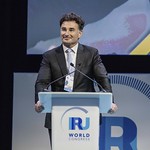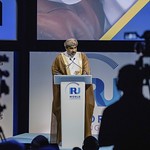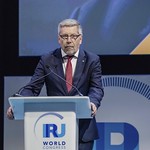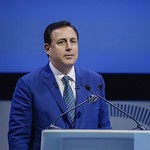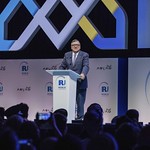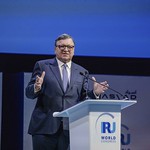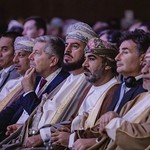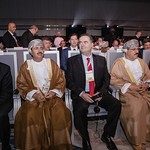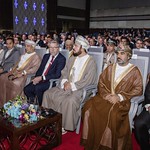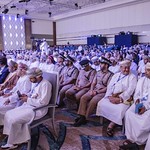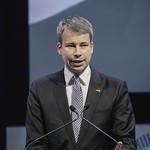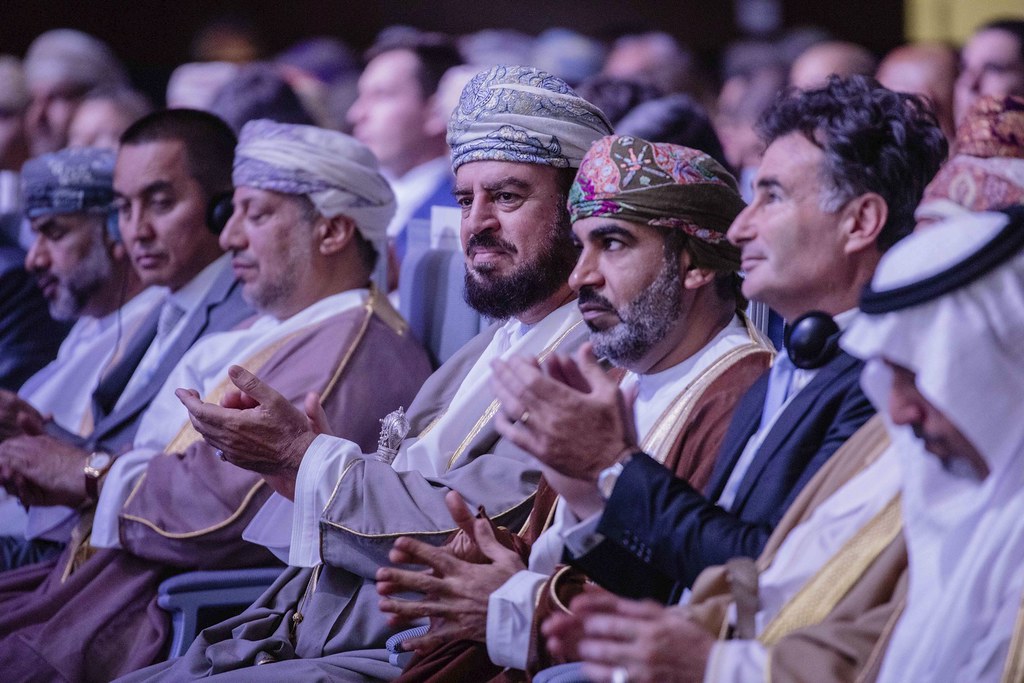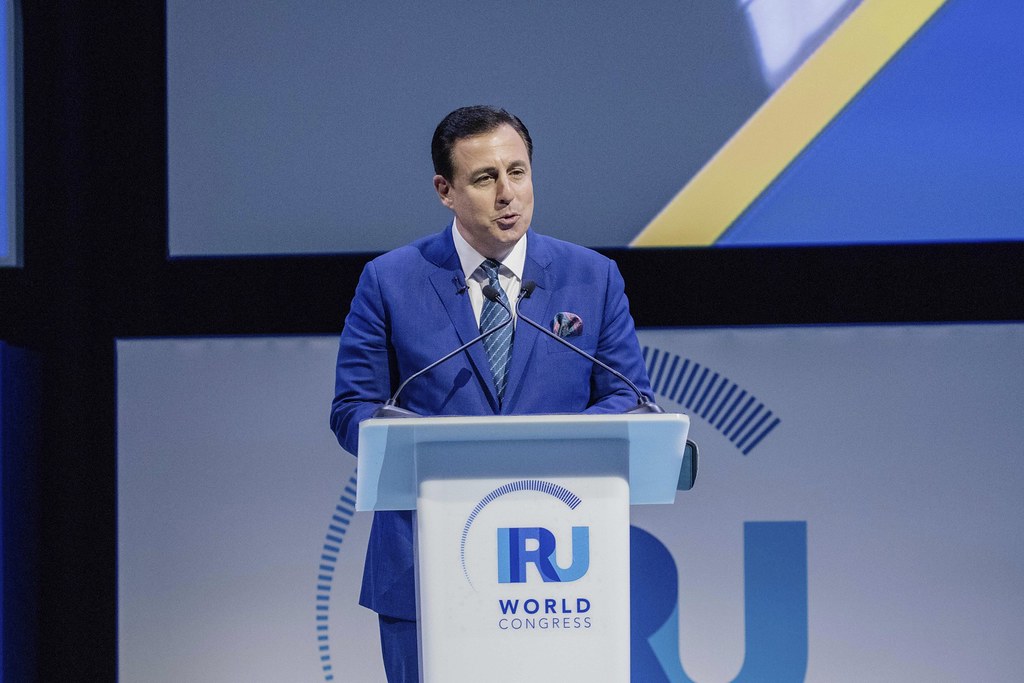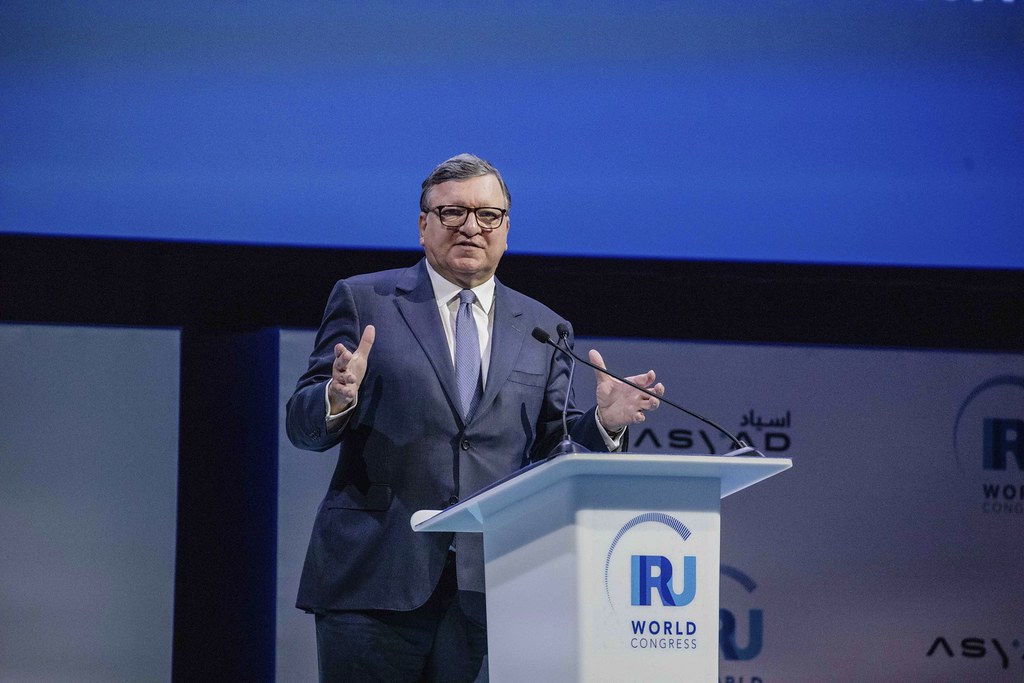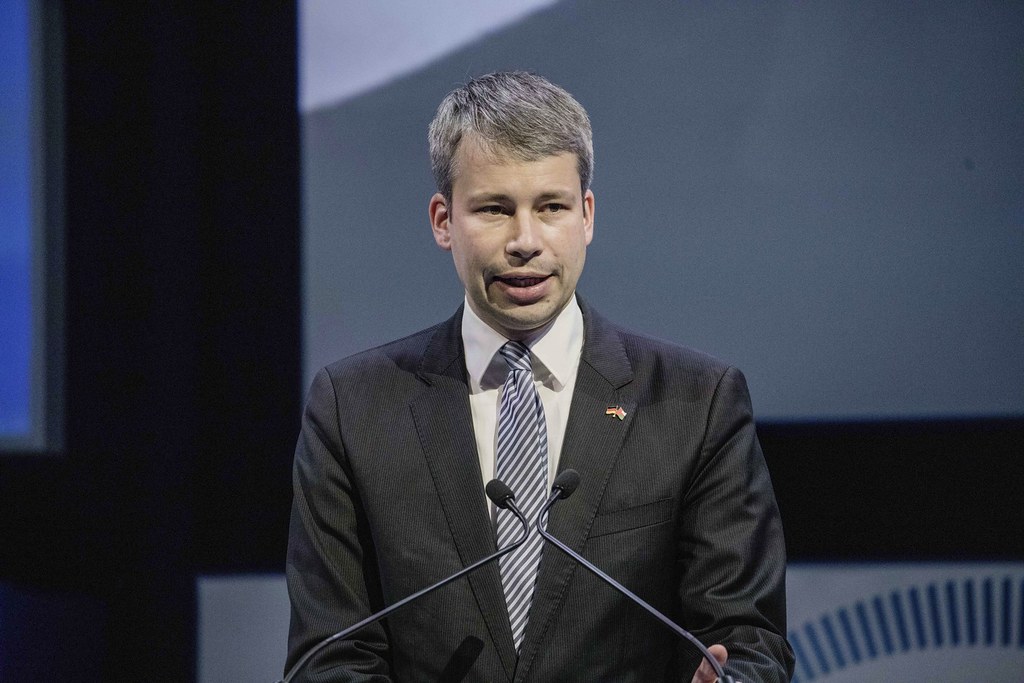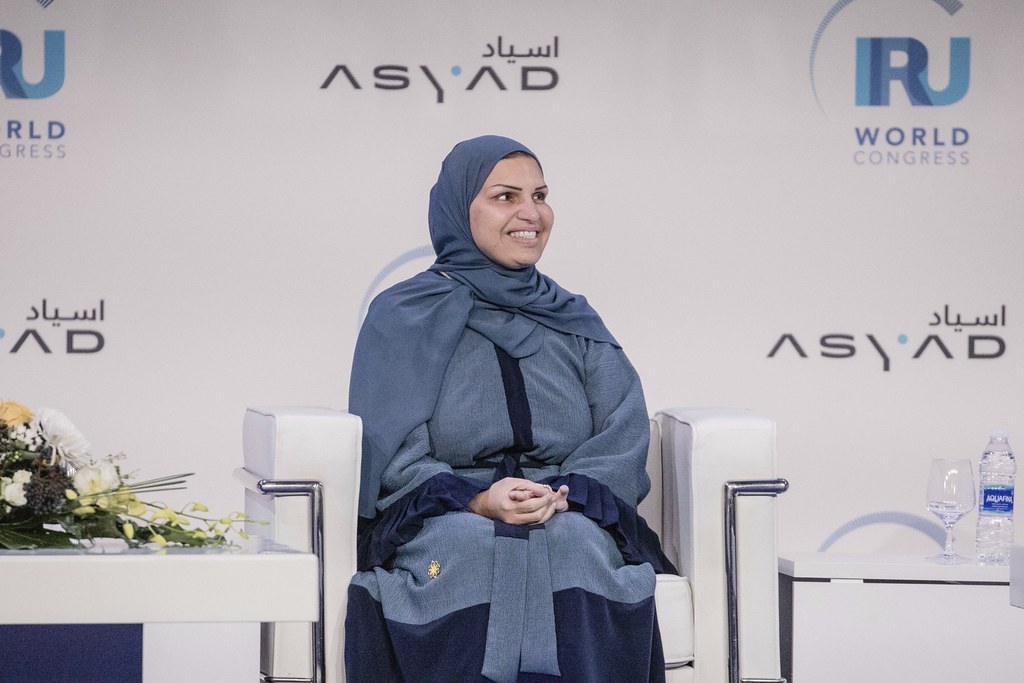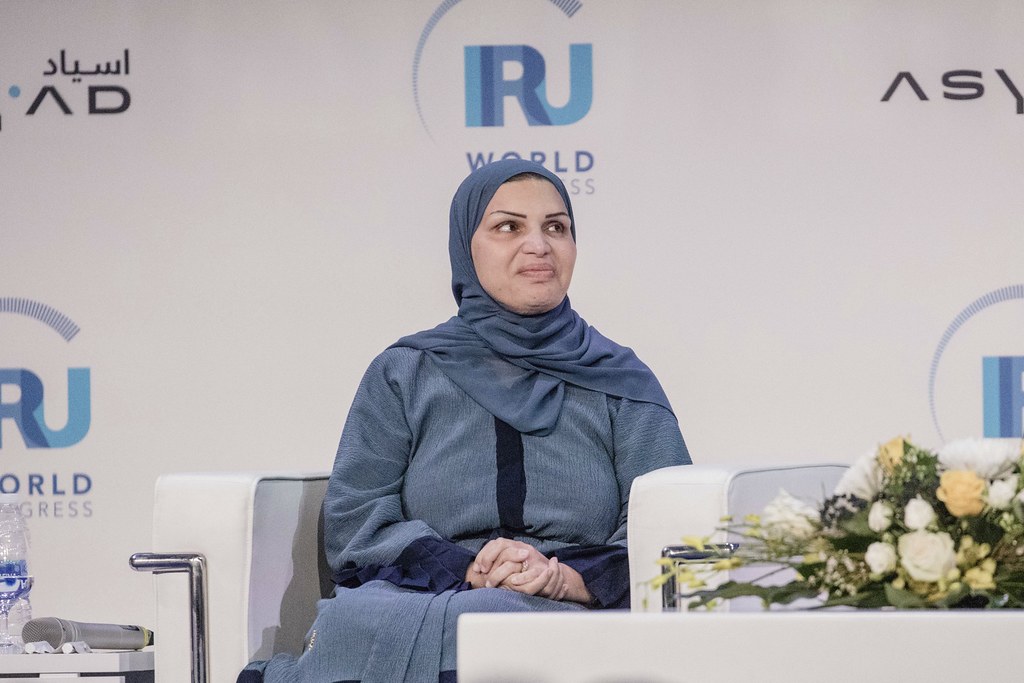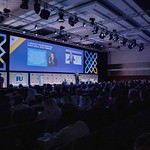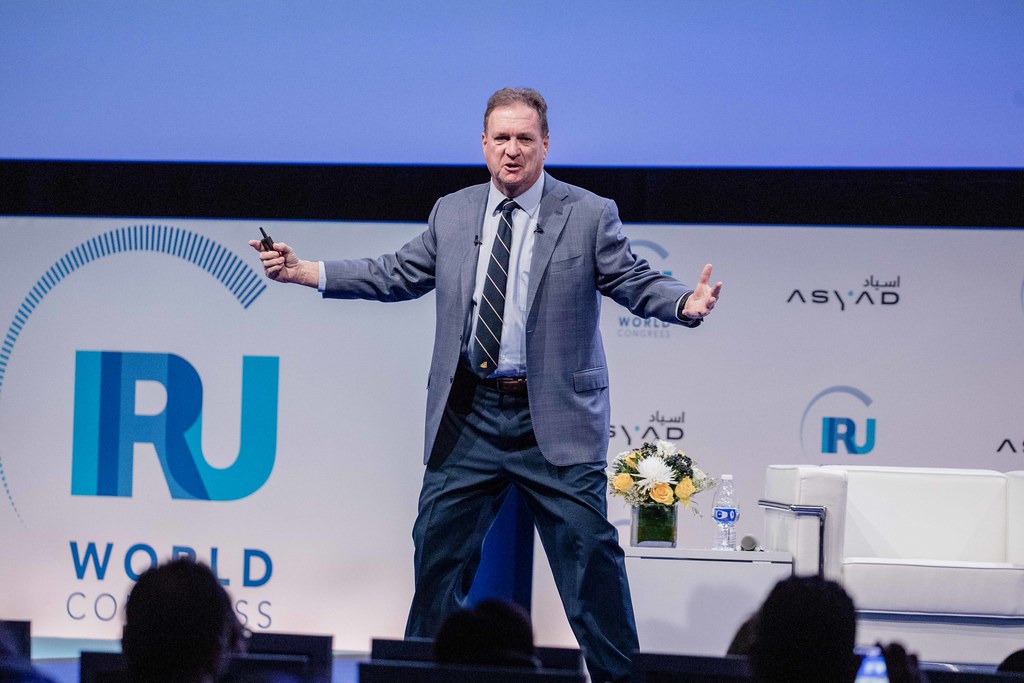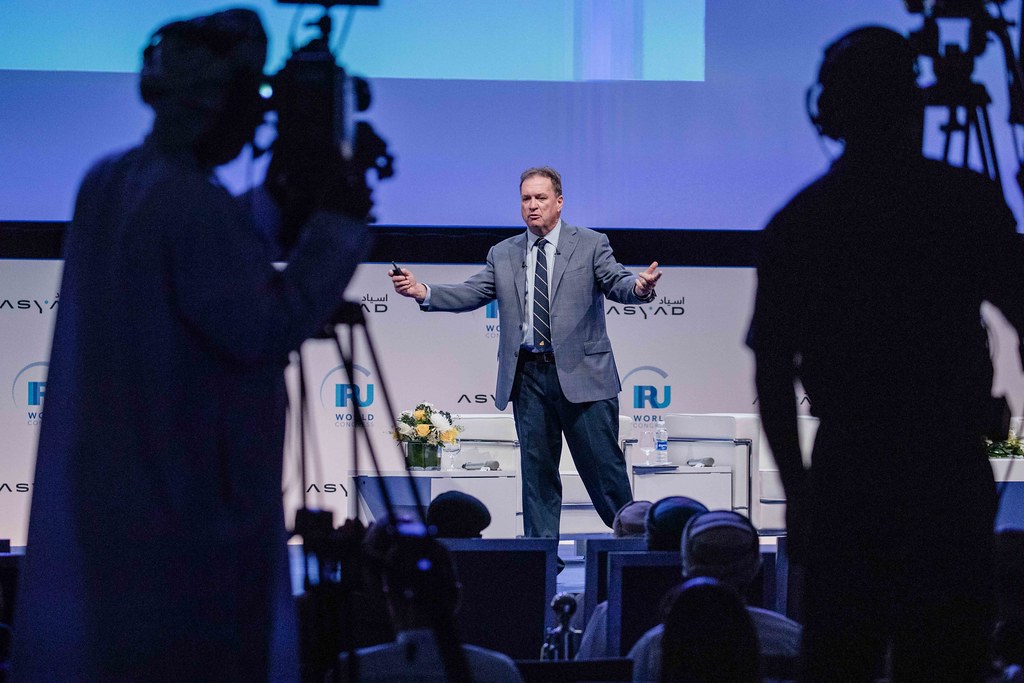More than 1000 delegates from 5 continents, 27 Ministerial delegations and 10 International Organisations in attendance.
Participants from over 75 countries engaged in lively debate on trade and innovation, and were captivated by a stellar roster of speakers, as momentum to map the future of transport, mobility, logistics and trade gathered in Muscat, Oman.
In the first opening plenary session, “Moving in the 21st Century – Road Transport, Mobility and Trade” José Manuel Durão Barroso, Chairman of Goldman Sachs International and Former President of the European Commission, described a “critical moment of transition” as “technological advantage defines our future”.
Barroso said, “Let’s prepare for a new world with a positive spirit,” adding, “Transport and mobility is intrinsic to integration, inter-connectedness and openness, which offer progress for mankind.”
A declaration was signed between IRU, Mwasalat, the official TIR issuing authority, and the Royal Oman Police Directorate General of Customs. This signing reaffirms the Sultanate’s commitment to boosting trade across its borders and working in partnership to bring the global transit system TIR to life in Oman.
Futurist and innovation expert Jim Carroll shared extensive knowledge and insights into the cutting-edge trends of our time to enable businesses and governments to pursue fast-paced innovation, and navigate rapid business model disruption and change. He said, “Some people see the future and see a threat. Innovators see the future and see an opportunity. Think big, start small and scale fast."
Caroll was joined in a panel discussion, by digital media pioneer and journalist Jorn Madsdlien, supply chain and logistics expert Mark Millar, UK logistics industry entrepreneur Alex Knowles, IVECO brand president Pierre Lahutte and Joachim Drees, CEO of MAN Trucks. The debate was chaired by moderator, CNN’s John Defterios.
Madsdlien argued that while the tech is ready, human beings will struggle with the decisions they need to make as a result, adding, “Everyone wants the data, but no one really wants the responsibility for controlling it.”
Mark Millar said “startups can scale fast and fail fast, which traditional transport and logistics companies are not able to do. Speed is a challenge for them." Knowles insisted on an enduring need for drivers – despite the autonomous hype. Drees predicted that by 2025 all major cities will have switched to electric buses, while Lahutte spoke of biomethane as a viable fuel option.
The interactive roundtable sessions discussed a number of hot topics including data management and analysis, enhancing competitiveness with infrastructure development and new intermodal connections, designing the future workforce, adopting next generation platforms, enabling trade facilitation and increasing fuel efficiencies.
IRU facilitated meetings between ministerial participants from 27 countries worldwide and leading business people, which took place on the sidelines. The meetings were moderated by Dr Nasser Saidi, a leading academic, former Lebanese Minister of Economy and Trade, former Vice-Governor of the Central Bank of Lebanon, and former Chief Economist at the Dubai International Financial Centre.
Discussions focused on how businesses and governments collaborate on the use technology to improve transport..
Topics included how to enable intermodal transport and how data can be used to drive interoperability. Participants recognised the need to address both hard infrastructure improvements alongside soft infrastructure systems – including legal frameworks and border processes.
Companies, entrepreneurs, and start-ups shaping the future of the mobility, logistics, and transport industry were also exhibited at the Innovation Alley, with live pitching ahead of the jury’s decision tomorrow.
The IRU World Congress will conclude on Thursday where innovation and competitiveness will be the main topic of discussion.

